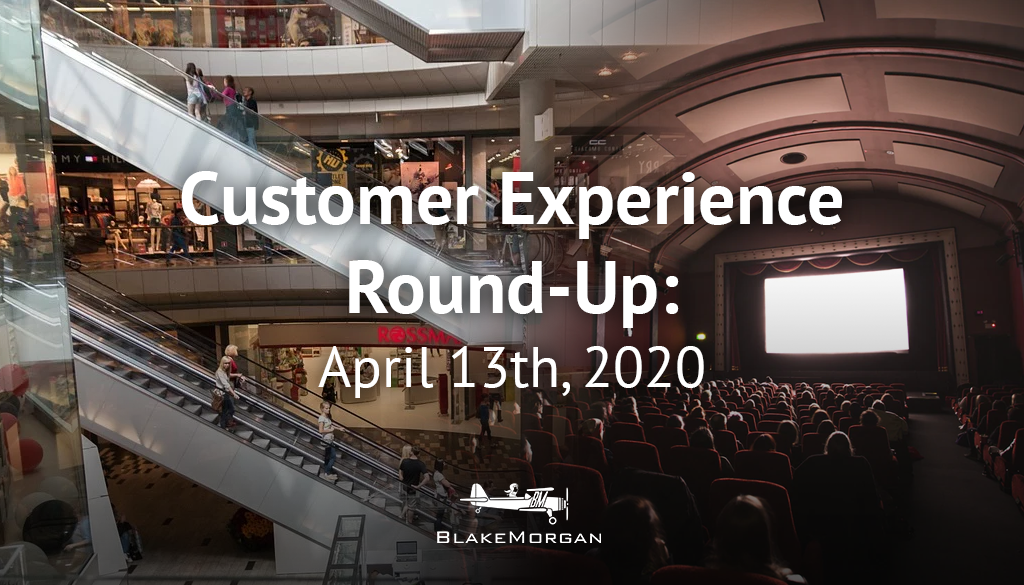As public health professionals predict when social distancing can end and the economy can re-open, many people are considering the potential long-term effects of the coronavirus pandemic on large industries. In-person shopping, dining and entertainment have been upended by the virus, and the impacts could be incredibly long lasting. Fragile industries like brick-and-mortar retail and restaurants might not be able to survive if they don’t adapt and evolve. This week brought three predictions for the future of major industries.
Movie Theaters Could See 25% Drop in 2020
The excitement of seeing a movie on the big screen has been replaced by a more convenient option: staying home and streaming it from your couch. As movie theaters close around the world and major movies either delay their release dates or move to streaming, the future of movie theaters seems uncertain. Added to the fact is that the summer—when many experts expect theaters will be able to open—doesn’t include a sure-fire blockbuster. The Wall Street Journal predicts that the North American box office could drop 25% this year.
Movie theaters have long been an accessible form of entertainment. For a relatively low cost, consumers can step out of their world and into another. But sitting in close proximity to strangers now takes on increased risk, and many people may choose to stream movies instead of going back to theaters. To stay relevant, movie studios and theaters need to adapt.
Restaurants Pivot To Delivery In Hopes Of Survival
As stay-at-home orders close restaurant dining rooms, dining establishments are shifting their focus to delivery and takeout to stay alive. But for many restaurants, the shift isn’t enough to keep their staff employed or to be sustainable long term. Many restaurants that tried to offer free delivery or take out have since closed their doors. More than half of the record jobs lost in the U.S. in March were from the restaurant industry. A large number of restaurants have been forced to close temporarily and hope they can survive and bring back staff and customers when their dining rooms are allowed to reopen.
The restaurant industry is fragile, especially for locally owned establishments. Not being able to serve customers in dining rooms has been a heavy blow, and even strong efforts at delivery and takeout often can’t match the lost revenue. In order for these restaurants to survive long term, they need to connect with customers and perhaps cut their losses temporarily to focus on long-term sustainability.
Future Of Malls In Question As More Stores Bail
Brick-and-mortar retail has faced uncertainty with the growth of ecommerce and experiential shopping in recent years, but the coronavirus pandemic has made the future even more unknown. As people get in the habit of social distancing, more consumers are switching to online shopping, a habit that could continue once the virus has been tamed. Malls that were already struggling to fill their storefronts now face an uphill battle of persuading stores to open physical locations. American Dream, the megamall in development in New Jersey, recently announced it is focusing more on entertainment and changing its slated tenants from 55% entertainment and 45% retail to 70% entertainment and 30% retail.
Even after the pandemic has ended, consumers’ shopping habits will likely be permanently changed. People will likely be more cautious about shopping in stores, especially after experiencing the convenience of online shopping. This crisis could be the catalyst to an even greater focus on entertainment and experiential retail instead of traditional brick and mortar.
After the coronavirus pandemic has calmed down, businesses and consumers will have to adapt to a new normal. For fragile industries like movie theaters and restaurants, it will likely take time for customers to return and profits to increase. All companies need to stay agile and continually evolve in these uncertain times.
Blake Morgan is a keynote speaker and the author of the bestselling book The Customer Of The Future. Listen to her podcast The Be Your Own Boss Podcast, here.

